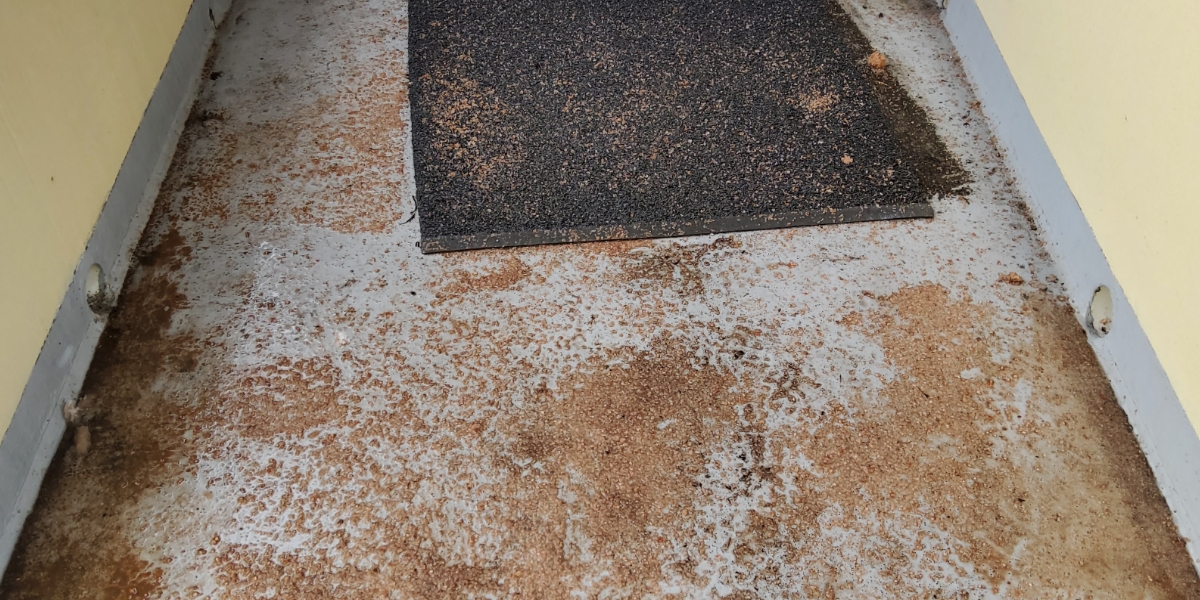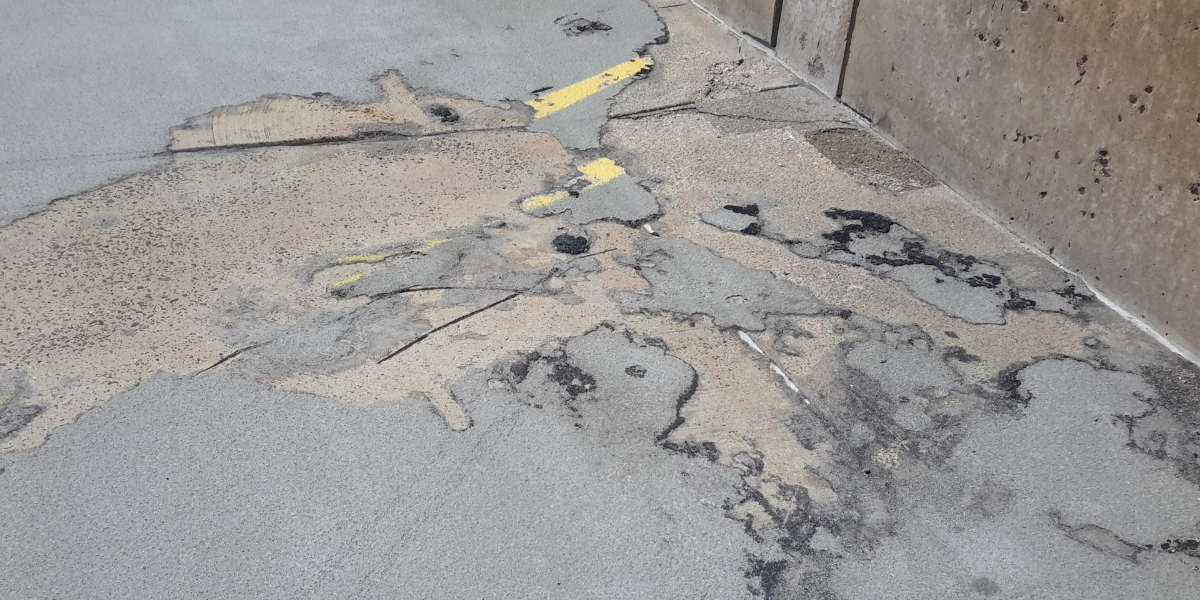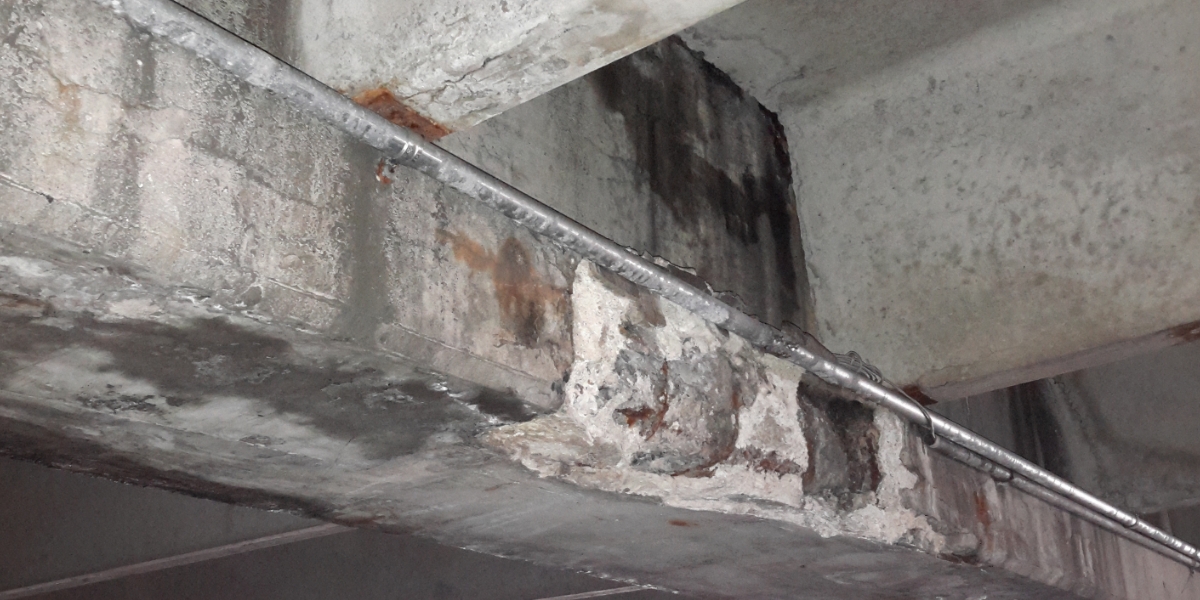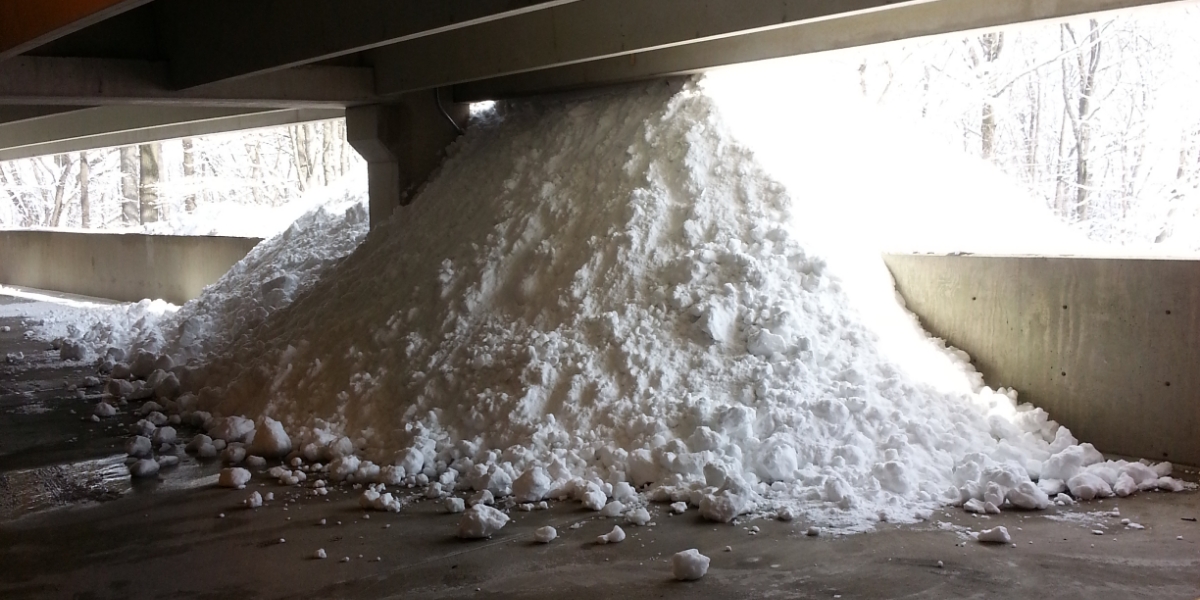Parking Structure Deterioration Guide

A parking garage is subject to stress from the first day concrete is poured and the structure is erected. Without proper maintenance, deterioration can reduce the structure’s service life by up to one-third — and result in unplanned downtime, exposure to increased risk, unexpected maintenance and increased costs.
Understanding common causes of deterioration and how they impact a parking garage is the first step in building a predictive maintenance plan that optimizes your structure’s health and stabilizes your budget. Let’s look at the factors that might be degrading your garage right now.
Download the infographic: "Common Types of Parking Garage Deterioration: Make a Plan to Protect Your Structure with Routine Maintenance."
Common Types of Parking Structure Deterioration
Waterproofing Failures

From traffic coatings to expansion joint sealants, waterproofing systems are essential tools for protecting your investment. When they fail and allow water into vulnerable areas, the resulting damage can wreak havoc on critical components and structures. Wide temperature swings and improper installation can lead to system failure. Vehicles and equipment cause damage as well, whether it’s a car colliding with a column or a snowplow scraping a deck coating.
In addition to acute damage, the service life of a waterproofing system is less than that of the parking structure itself — a roof-level sealant exposed to the elements may only last 7 to 10 years. This factor means that, along with regular assessment to pinpoint damage, it’s also critical to replace waterproofing systems as they near the end of their service life.
Explore our infographic, “Common Types of Parking Garage Deterioration: Make a Plan to Protect Your Structure with Routine Maintenance.”
Chemical Reactions

De-icers, particularly those using popular chloride chemicals, are among the most aggressive concrete deteriorators. Concrete absorbs chlorides like a sponge. Once they penetrate the surface, the de-icing chemicals can rust reinforcing steel. Chloride can also lead to surface cracks, delamination or fractures, or cracking and spalling of the concrete cover.
Other chemical-related deterioration includes sulfate attacks, caused by sulfates in soil, ground water or sea water. Sulfate attacks can result in cracking or strength loss and in some cases can disintegrate the concrete. Although less common in modern parking structures, alkali silica reactivity (ASR) can also be the source of damage. This internal chemical attack results from concrete’s incompatibility with other building materials, leading to cracking.
Learn more in our infographic, “Common Types of Parking Garage Deterioration: Make a Plan to Protect Your Structure with Routine Maintenance.”
Freeze-Thaw Cycle

Parking garages exposed to regular freeze-thaw cycles are also at risk for damage. For example, water that seeps into pores and capillaries expands as it freezes. The expansion pressure can lead to additional fractures that eventually work outward toward the surface. Common on horizontal surfaces exposed to water, the impact of freeze-thaw cycles frequently damages porous concrete.
In addition, the freeze-thaw cycle can make existing damage worse. Water can freeze in cracks caused by other factors, from de-icing chemicals to vehicle damage. As a result, even small cracks can quickly expand and lead to the need for more expansive repairs.
Discover more deterioration types in “Common Types of Parking Garage Deterioration: Make a Plan to Protect Your Structure with Routine Maintenance.”
Snow

The cold, white stuff can cause headaches that go well beyond the work of clearing snow from your parking garage and the surrounding property. A snow pile pushed against a load-bearing wall can dislodge the wall, creating safety issues for staff and customers, as well as requiring an expensive emergency repair.
Weight overload during and after snow events can also impact a parking garage’s structural health. For example, a snow pile might weigh more than the building’s recommended design limits, causing excess structural stress. Vehicles used to haul snow can exceed deck capacity, too. Like any weight overload situation, these scenarios can lead to damage and, in the worst case, cause collapse, endangering people as well as the structure itself.
Read more in our infographic, “Common Types of Parking Garage Deterioration: Make a Plan to Protect Your Structure with Routine Maintenance.”
Do You Have a Plan for Addressing Deterioration in Your Parking Structure?
While emergencies are always a possibility for any parking structure, it’s important to address common types of deterioration on a regular basis. Without attention, deterioration can accelerate quickly and lead to higher costs down the road.
Whether you need to mitigate snow-related damage or talk with restoration consultants to address waterproofing failures, StructureCare’s team is ready to help. Our engineering experts have refined the traditional parking garage management approach to provide you with streamlined maintenance and restoration processes, as well as improved cost control.
Let’s solve your structure’s maintenance or deterioration issue today. Contact us.
Problem? Question?
Let's solve it. And not just for today — for the long term, too.